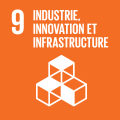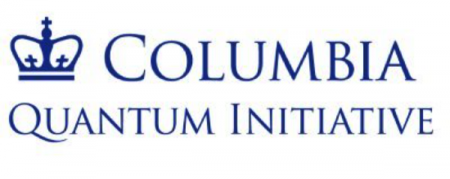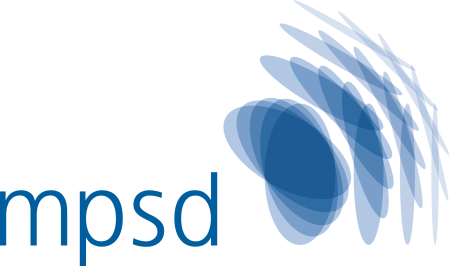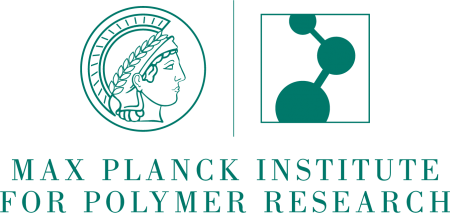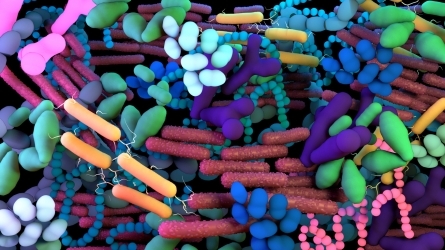
Big ideas for light and materials workshop
Organized by the Max Planck-New York City Center on Non-Equilibrium Quantum Phenomena
Descripción
The Max Planck Institute for the Structure and Dynamics of Matter in Hamburg and the Max Planck Institute for Polymer Research in Mainz together with the Columbia University and the Center for Computational Quantum Physics at the Flatiron Institute have successfully launched a joint enterprise: the “Max Planck-New York City Center on Non-Equilibrium Quantum Phenomena”. The center was officially inaugurated by all four partner organizations on November 18, 2019 at Columbia University, USA.
The Center’s ambitious collaborative effort aims to understand, control, and manipulate the uniquely useful properties of quantum materials and the control of non-equilibrium quantum phenomena in complex materials. We especially focus on applications of non-linear light-matter coupling that result in phases with no equilibrium counterparts i.e. strong coupling of light and matter; dynamical control of materials properties and chemical reactions; design of photo-susceptible materials.
In 2024 and to commemorate the finalization of the first funding period of the center, we are organizing a Big Ideas workshop on the future of Light, Spectroscopy, and Quantum Materials.
The time is right to address the question:
Can we capitalize on light manipulation, materials, and quantum optics advances to create a new era in Quantum Science?
We will bring together current and future leaders working in distinct areas, including novel spectroscopic and theoretical tools, artificial lattices of matter and light, quantum optics, and materials.
The workshop will include half-hour talks along with another half-hour of discussion. Each day concludes with a panel to discuss and brainstorm on how these approaches can come together to shape future scientific and technological advances
The event will take place in Palace Miramar, San Sebastian, from Tuesday, May 28th (arrival May 27th) until Friday, May 31st, 2024.
Scientific Organizing Committee:
Andrea Cavalleri (MPSD), Andrew Millis (CCQ), Angel Rubio (MPSD & CCQ), and Kenneth Burch (Boston College)
Objetivos
Provide a platform to facilitate discussion among members and collaborators of the center on the topic of manipulation of light, materials, and advances in quantum optics in the new era of Quantum Science
Público objetivo al que está dirigida la actividad
- Profesorado
- Profesionales
- Colaboradores del centro
Directoras/es
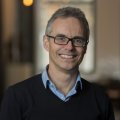
Angel Rubio
UPV/EHU
Angel Rubio is is the managing director of the Max Planck Institute for the Structure and Dynamics of Matter and the director of its theory department. He is a distinguished Research Scientist at the Flatiron institute's Center for Computational Quantum Physics distinguished as well as Professor of physics at the University of the Basque Country and the University of Hamburg. Rubio’s research focuses on the modeling and theory of electronic and structural properties of condensed matter. He is working on developing novel theoretical tools, such as time-dependent functional theory for quantum electrodynamics and computational codes for the ab initio description and control of the dynamics of decoherence and dissipation in quantum many-body systems, and on characterizing new nonequilibrium states of matter.
Ponentes

Andrea Alu
CUNY Advanced Science Research Center
Andrea Alù is a Distinguished Professor, founding director of the Photonics Initiative at the CUNY Advanced Science Research Center, Einstein Professor of Physics at the CUNY Graduate Center, and Professor of Electrical Engineering at The City College of New York. He is affiliated with the Wireless Networking and Communications Group and the Applied Research Laboratories, both based at the University of Texas at Austin, where he is a Senior Research Scientist and Adjunct Professor. His research interests span over a broad range of technical areas, including applied electromagnetics, nano-optics and nanophotonics, microwave, THz, infrared, optical and acoustic metamaterials and metasurfaces, plasmonics, nonlinearities and nonreciprocity, cloaking and scattering, acoustics, optical nanocircuits and nanoantennas.

Mete Atatüre
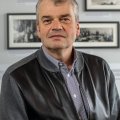
Dmitri Basov
Columbia University
Dmitri N. Basov (PhD 1991) is a Higgins professor and Chair of the Department of Physics at Columbia University [http://infrared.cni.columbia.edu], the Director of the DOE Energy Frontiers Research Center on Programmable Quantum Materials and co-director of Max Planck Society – New York Center for Nonequilibrium Quantum Phenomena. He has served as a professor (1997-2016) and Chair (2010-2015) of Physics, University of California San Diego. Research interests include: physics of quantum materials, superconductivity, two-dimensional materials, infrared nano-optics. Prizes and recognitions: Sloan Fellowship (1999), Genzel Prize (2014), Humboldt research award (2009), Frank Isakson Prize, American Physical Society (2012), Moore Investigator (2014, 2020), K.J. Button Prize (2019), Vannevar Bush Faculty Fellowship (U.S. Department of Defense, 2019), National Academy of Sciences (2020).
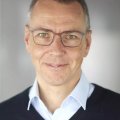
Immanuel Bloch
Max Planck Institute of Quantum Optics
Immanuel Bloch is scientific director at the Max-Planck-Institute of Quantum Optics, Garching and professor for experimental physics at the Ludwig-Maximilians University (LMU) in Munich. He is also one of the spokespersons of the Munich Center for Quantum Science and Technology (MCQST). He obtained his PhD in physics in 2000 from LMU. From 2003-2009 he was full professor at the University of Mainz. In 2009 he returned to Munich, where his research focus lies on the investigation of quantum many-body systems, quantum simulations, quantum information processing and quantum optics. Immanuel Bloch received several prizes for his work, among them the Gottfried-Wilhelm-Leibniz prize of the German Science Foundation (DFG), the German National Merit Medal in 2005, the international commission of optics prize, the Senior Prize for Fundamental Aspects of Quantum Electronics and Optics of the European Physical Society, the Körber European Science Prize, the Senior BEC Award and the Harvey Prize of the Technion. Recently he received the Bavarian Maximilian Order for Science and Art in 2021, the highest distinction in Bavaria for outstanding contributions in these two disciplines and was named Clarivate Citation Laureate in 2022.

Mischa Bonn
Mischa Bonn joined the Max Planck Society in 2011 as director of the Max Planck Institute for Polymer Research, heading the division “Molecular Spectroscopy”. Bonn completed his MSc degree in physical chemistry - with highest honors - in 1993 at the University of Amsterdam (NL) and performed his PhD research (1993-1996) at the FOM-Institute for Atomic and Molecular Physics in Amsterdam. After two postdoctoral stays, at the Fritz Haber Institute (1997-1999) and at Columbia University, New York (1998-1999), he became assistant professor in 1999 at Leiden University, to receive tenure and promotion to associate professor in 2002. In 2004, he returned to the Institute for Atomic and Molecular Physics in Amsterdam as group leader. He has been an extraordinary professor at the University of Amsterdam since 2005 and an honorary professor at Mainz University since 2012. Bonn has won several prizes and awards for his work, including the Gold Medal from the Royal Dutch Chemical Society and the Van ’t Hoff Award from the Deutsche Bunsengesellschaft. His scientific interests focus on the development and application of laser-based (ultrafast) spectroscopies to advance our understanding of natural phenomena, specifically at interfaces.
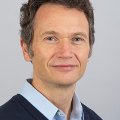
Eugene Demler
ETH

Dmitri Efetov
Dmitri K. Efetov earned a M.A., M. Ph. and Ph.D. in Physics from Columbia University (USA) in 2014, under the supervision of one of the pioneers of graphene Prof. Philip Kim, with a thesis titled “Towards inducing superconductivity into graphene”. Efetov then worked as a Postdoctoral Researcher at the Massachusetts Institute of Technology (MIT) in the group of Prof. Dirk Englund, developing ultra-fast microwave thermometry and single photon detectors based on graphene. In 2017 Efetov was appointed Assistant Professor and Group Leader at ICFO, and since 2021 he is a Full Professor and Chair of Solid State Physics at LMU Munich, with a research program that focus on the investigation of novel “moiré materials” at the intersection of condensed matter physics, optics and quantum science. His accomplishments include the prestigious Charles H. Towns Award for exceptional research during his PhD, an ERC Starting Grant, the 2022 IUPAP Early Career Scientist Prize in Semiconductor Physics, and the esteemed DFG Leibniz Prize in 2024 for his remarkable advancements in device quality enhancement and pioneering investigations into novel insulating, superconducting, and topological phases in magic angle twisted bilayer graphene.

Rafael Fernandes
University of Minnesota
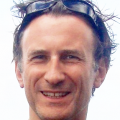
Michael Fogler
Fogler was appointed Professor at UC San Diego, La Jolla California in 2022. Fogler’s group conducts research in condensed-matter theory. They study semiconductors, nanostructures, graphene, and other two-dimensional crystals. His research interested is focused on electronic, excitonic, mechanic, and plasmonic properties of such materials. One of his recent research highlights is a series of works on plasmons and polaritons in graphene and other 2D van der Waals crystals. His group collaborates with a number of experimentalists, both at UCSD and at large.

Maia G. Vergniory

Christophe Galland
Christophe Galland studied at Ecole Polytechnique in Paris and received his PhD in 2010 from ETH Zürich for a thesis in solid-state quantum optics with individual carbon nanotubes, in the Quantum Photonics Group of Prof. Ataç Imamoglu. As a postdoctoral researcher at Los Alamos National Lab (USA) he studied the photophysics of individual nanocrystal quantum dots . He then moved to the University of Delaware , where he lead several international projects such as the realisation of an on-chip source of quantum correlated photons integrating optical filters and demultiplexers. From 2013 to 2016, he worked at EPFL in the group of Prof. Kippenberg in the field of quantum optomechanics with an Ambizione Fellowship of the Swiss National Science Foundation (SNSF). Since May 2017, Galland is leading the Laboratory of Quantum and Nano-Optics at EPFL as an SNSF-funded professor in the Institute of Physics. His team investigates light-matter interaction at the nanoscale and in the quantum regime, with a focus on molecules embedded in plasmonic cavities and on nitrogen-vacancy centers in diamond. Applications include quantum sensing and optical frequency conversion.
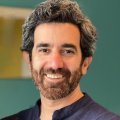
Mohammad Hafezi
Mohammad Hafezi studied for two years at Sharif University before completing his undergraduate degree at École Polytechnique in 2003. He received his Ph.D. in Physics from Harvard University in 2009. He was a senior research associate at the Joint Quantum Institute before joining the faculty of University of Maryland. His group aims at the theoretical and experimental investigation of quantum properties of light-matter interaction, for applications in classical and quantum information processing and sensing. He received a Sloan Research Fellowship and Office of Naval Research Young Investigator award in 2015.

Rupert Huber
Rupert Huber studied physics in Munich and Berkeley. He received his PhD degree in physics from Technische Universität München, in 2004. In the subsequent two years, he worked as a Humboldt postdoctoral fellow at Lawrence Berkeley National Laboratory before he was awarded with an Emmy Noether Grant by the German Science Foundation (DFG), funding his junior research group at University of Konstanz. For the group’s work on ultrafast low-energy dynamics in solids, Rupert Huber received the Rudolf Kaiser Prize 2009. One year later, he was appointed a professor and chair of physics at University of Regensburg. His scientific work has since been backed up by an ERC Consolidator Grant on Ultrafast quantum physics on the subcycle time scale. His most recent scientific interest has been on lightwave-driven electronics leading to high-harmonic generation and quasiparticle collisions in solids, subcycle near-field optics, and atomic-resolution femtosecond scanning-tunnelling microscopy. Currently he is Principal Investigator in the ERC Synergy Grant "Orbital Cinema".

Junichiro Kono
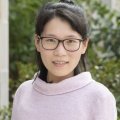
Qiong Ma Ma
Boston College
Dr. Qiong Ma got her Bachelor’s degree from the University of Science and Technology of China (USTC). She then moved to MIT where she got her Ph.D. of physics under the supervision of Prof. Pablo Jarillo-Herrero and in close collaboration with Prof. Nuh Gedik. Her group focuses on uncovering and understanding the fundamental physics of novel quantum materials, particularly about electron and phonon dynamics, low dimensionality, topology, and correlation. Our group applies advanced nano-/micro-sized device fabrications to control multiple degrees of freedom in quantum materials and combine low-temperature electronic transport and nonlinear, ultrafast, and near-field optoelectronic microscopies and spectroscopies to probe the physics.

Marco Polini
Department of Physics, University of Pisa

Leslie Schoop
Dr. Schoop received her Diploma in Chemistry from Johannes Gutenberg University (2010) and PhD in Chemistry from Princeton University (2015). She then went on to work as a Minerva fast-track fellow under Professor Bettina Lotsch at the Max Planck Institute for Solid State Research (2015-2017). Dr. Schoop joined the Princeton University Department of Chemistry Faculty in 2017. In 2019 she won the Beckman Young Investigator award and became a Moore foundation EPiQS Materials Synthesis Investigator. Several honours followed such as the Packard Fellowship in Science and Engineering (2020); the Sloan Fellowship (2021); Award of Office of Naval Research Young Investigator Program, (2021) and the NSF CAREER Award (2022). The Schoop Lab is working at the interface of chemistry and physics, using chemical principles to find new materials with exotic physical properties.
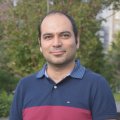
Javad Shabani
Shabani received his PhD from Princeton University in 2011. After two years of research on semiconductor-based qubits at Harvard University, he joined UC Santa Barbara. There, he worked closely with Microsoft research on hybrid semiconductors/superconductors heterostructures to study topological superconductivity. He is an expert in quantum materials and devices for computation technologies. He is currently an assistant professor of Physics at New York University. His current research interests are 1) Novel states of matter at interfaces with focus on hybrid superconductor-semiconductor systems 2) Mesoscopic and nanoscale physics with emphasis on low dimensional semiconductors with focus on new materials/device development for quantum information 3) Physics of integer and fractional quantum Hall effect and 4) Epitaxial growth of compound superconducting metals-semiconductor, including high mobility two-dimensional electron systems and nano-plates using molecular beam epitaxy.

Jie Shan
Jie Shan received her diploma in Mathematics and Physics from Moscow State University, Russia in 1996 and Ph.D. in Physics from Columbia University in 2001. From 2002 - 2014, she was an assistant and associate professor in Physics at Case Western Reserve University; and from 2014 - 2017, an associate and full professor at the Pennsylvania State University. She joined the Cornell University School of Applied and Engineering Physics as a full professor in 2018. Shan's research focuses on the optical and electronic properties of nanoscale materials. Of particular interest are atomically thin two-dimensional crystals (such as graphene and MoS2) and their heterostructures. We develop experimental techniques to probe, image and control the internal degrees of freedom of electrons and their new phases in these nanoscale systems. Various linear and nonlinear optical spectroscopy and microscopy techniques are employed to access both the steady state properties and ultrafast dynamics.
Precios matrícula
| Matrícula | Hasta 28-05-2024 |
|---|---|
| 0 EUR |
Lugar
Palacio Miramar
Pº de Miraconcha nº 48. Donostia / San Sebastián
Gipuzkoa
Palacio Miramar
Pº de Miraconcha nº 48. Donostia / San Sebastián
Gipuzkoa
Objetivos de desarrollo sostenible
Desde UIK queremos aportar a la consecución de los Objetivos de Desarrollo Sostenible (ODS) 2030. Para ello, hemos identificado a qué objetivos contribuyen nuestros programas. Puedes consultar los objetivos a continuación.
La Agenda 2030 es la nueva agenda internacional de desarrollo que se aprobó en septiembre de 2015 en el seno de Naciones Unidas. Esta Agenda pretende ser un instrumento para la lucha a favor del desarrollo humano sostenible en todo el planeta, cuyos pilares fundamentales son la erradicación de la pobreza, la disminución de las vulnerabilidades y las desigualdades, y el fomento de la sostenibilidad. Es una oportunidad única para transformar el mundo antes del 2030 y garantizar los derechos humanos para todas las personas. Esta agenda marca 17 objetivos.
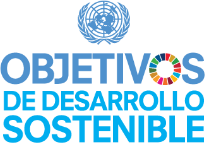
9 - Industria, innovación e infraestructura
Construir infraestructuras resilientes, promover la industrialización inclusiva y sostenible y fomentar la innovación. Cuestiones clave: infraestructuras fiables, sostenibles, resilientes y de calidad, industrialización inclusiva y sostenible, modernización, tecnologías y procesos industriales limpios y ambientalmente racionales, investigación científica y mejora de la capacidad tecnológica, acceso universal a las TIC.
Más información